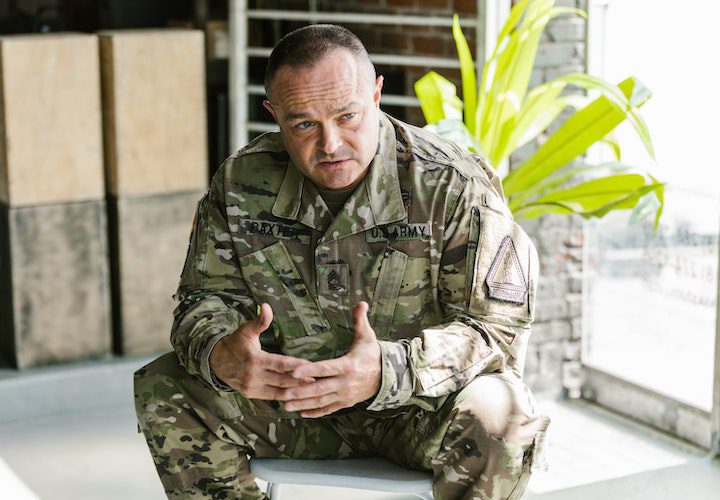
Could Your Veteran Need Drug Treatment?
Drug addiction is a complex disease that presents itself in people in various ways. Veterans, in particular, are vulnerable due to the mental, emotional, and physical challenges that often result from their time of service. You might view the veteran you love as confident, strong, and courageous, but they may also be struggling with a wide range of emotions, mental health disorders, and physical ailments. They may be hiding it well, or they could be expressing it in a way you don’t understand.
Signs a Veteran May Have a Drug Addiction
How do you know the veteran in your life has a drug addiction? It may seem like an impossible situation for you to accuse someone of such a thing, especially someone who has been through so much and done so much for you and others. Yet, addiction isn’t a personal or moral failing, and veterans who struggle with addiction need help – they need someone to reach out to them and offer guidance and support.
If you see any of the following signs of addiction in your loved one, take action.
Increases in PTSD Symptoms
Post-traumatic stress disorder can create numerous symptoms, including reliving traumatic experiences. In such moments, the person may seem distant, unable to focus, or show an intense reaction to something like fireworks or a loud vehicle. As these symptoms increase, their intensity does as well. This becomes unbearable, leading to the use of substances that seem to take the edge off.
PTSD symptoms are not always easily noticeable. Rather, they may involve:
- Mood swings
- Moments of intense sweating or a racing heart
- Unexplained moments of anger or intense fear
- Panic attacks
- Simply zoning out and not paying attention to what’s occurring
Increased Use of Prescription Medications
Many people with addiction struggle with tolerance, a condition that occurs when the body becomes used to the substance they are using. When tolerance develops, the person needs more of the substance to get the same type of relief.
If your loved one is using opioids for painkillers or benzodiazepines for anxiety and stress, and you notice changes in their usage, that’s a sign they may need help for addiction.
- They run out of their prescription too soon
- They visit different doctors so they can get multiple prescriptions instead of having to wait until one runs out
- They are using someone else’s drugs
- They are combining prescription medications with heroin or alcohol to get more of an impact
These behaviors can lead to overdose. It’s important to recognize the need to take action right away to prevent that from occurring.
Changes in Behavior
Many people with addiction become more withdrawn than they used to be. They may feel overwhelmed, or they may simply seem not to care anymore about things that used to make them happy. You may think that being in the Armed Services has changed them, but in reality, it could be that addiction is impacting their health and quality of life.
Some of the most obvious changes you could see that may signal a need for treatment include:
- Withdrawing from life, preferring to be on their own (this could be a sign of depression that needs mental health care as well)
- No longer taking care of things they love, whether that’s their pet, their home, or their overall hygiene
- They are combative and angry often, sometimes with no explanation and often with extreme levels of frustration that do not seem to fit the situation
- They are struggling at work, perhaps not meeting goals and expectations or simply hating their job more than they did
- Their relationships are falling apart
If you notice behavioral changes like these in your loved one, don’t wait to seek help. The most important first step you can take is to reach out for professional guidance. At Victory Addiction Recovery Center in Lafayette, Louisiana, we work closely with you to help you support your loved one. Our Veterans Program is uniquely designed to support men and women battling drug addiction and mental health disorders. Learn more about how it is saving lives.
